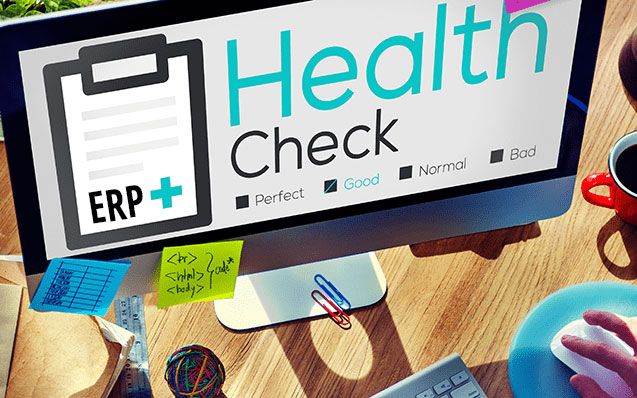Penn State partners with ERPHealth to help prevent substance use disorder

ERP-Health-Check
April 10, 2025
The Edna Bennett Pierce Prevention Research Center (PRC) at Penn State and ERPHealth, a Philadelphia-based behavioral health technology company, have announced a research partnership aimed at advancing the prevention, early intervention, treatment and long-term management of substance use disorders.
The partnership will focus on applying outcomes-based behavioral health data to inform research, design scalable interventions, and influence public health policy at local, state, and national levels. The data is collected in real-time in ERPHealth’s patient management software at more than 220 treatment centers nationwide. The software is used to deliver personalized, measurable care to drive long-term recovery and overall well-being.
“This partnership has the potential to dramatically reduce human suffering and economic burden through the development of early and targeted interventions,” said Max Crowley, PRC director. “We can harness the power of data to make investments in children and families in a way that is rigorous, effective, and potent — and also efficient — recognizing that we are using public resources.”
ERPHealth will work with Penn State faculty and students to co-design and implement research initiatives that drive better outcomes for patients and communities while influencing broader policy and funding models that support prevention-first frameworks in behavioral health.
“By combining Penn State’s groundbreaking research with our real-world behavioral health data, we are creating a feedback loop that accelerates the development of effective, scalable solutions for communities impacted by substance use disorder. ”
– Eric Gremminger, ERPHealth CEO and co-founder
“The future of behavioral healthcare will be driven by personalization, purpose and prevention.” said Nicholas Bardoutsos, ERPHealth president and co-founder. “While healthcare professionals have long recognized the benefits of technology for precision medicine, we as a society are only just beginning to unlock the potential of how technology can position an individual’s success within behavioral health.”
Penn State is a leader in secure analysis of healthcare data to improve health outcomes. Through cutting-edge research, the PRC has developed evidence-based strategies to address some of the most pressing challenges facing families and communities—ranging from adolescent behavioral issues to child maltreatment and substance misuse.
“We are excited to partner with one of the most respected institutions in the field of prevention science,” said Eric Gremminger, ERPHealth CEO and co-founder. “By combining Penn State’s groundbreaking research with our real-world behavioral health data, we are creating a feedback loop that accelerates the development of effective, scalable solutions for communities impacted by substance use disorder. This partnership represents a major step forward in our shared mission to improve lives through data, innovation, and compassion.”
Recent News
Penn State partners with ERPHealth to help prevent substance use disorder

ERP-Health-Check
April 10, 2025
The Edna Bennett Pierce Prevention Research Center (PRC) at Penn State and ERPHealth, a Philadelphia-based behavioral health technology company, have announced a research partnership aimed at advancing the prevention, early intervention, treatment and long-term management of substance use disorders.
The partnership will focus on applying outcomes-based behavioral health data to inform research, design scalable interventions, and influence public health policy at local, state, and national levels. The data is collected in real-time in ERPHealth’s patient management software at more than 220 treatment centers nationwide. The software is used to deliver personalized, measurable care to drive long-term recovery and overall well-being.
“This partnership has the potential to dramatically reduce human suffering and economic burden through the development of early and targeted interventions,” said Max Crowley, PRC director. “We can harness the power of data to make investments in children and families in a way that is rigorous, effective, and potent — and also efficient — recognizing that we are using public resources.”
ERPHealth will work with Penn State faculty and students to co-design and implement research initiatives that drive better outcomes for patients and communities while influencing broader policy and funding models that support prevention-first frameworks in behavioral health.
“By combining Penn State’s groundbreaking research with our real-world behavioral health data, we are creating a feedback loop that accelerates the development of effective, scalable solutions for communities impacted by substance use disorder. ”
– Eric Gremminger, ERPHealth CEO and co-founder
“The future of behavioral healthcare will be driven by personalization, purpose and prevention.” said Nicholas Bardoutsos, ERPHealth president and co-founder. “While healthcare professionals have long recognized the benefits of technology for precision medicine, we as a society are only just beginning to unlock the potential of how technology can position an individual’s success within behavioral health.”
Penn State is a leader in secure analysis of healthcare data to improve health outcomes. Through cutting-edge research, the PRC has developed evidence-based strategies to address some of the most pressing challenges facing families and communities—ranging from adolescent behavioral issues to child maltreatment and substance misuse.
“We are excited to partner with one of the most respected institutions in the field of prevention science,” said Eric Gremminger, ERPHealth CEO and co-founder. “By combining Penn State’s groundbreaking research with our real-world behavioral health data, we are creating a feedback loop that accelerates the development of effective, scalable solutions for communities impacted by substance use disorder. This partnership represents a major step forward in our shared mission to improve lives through data, innovation, and compassion.”
Recent News
Recent News








